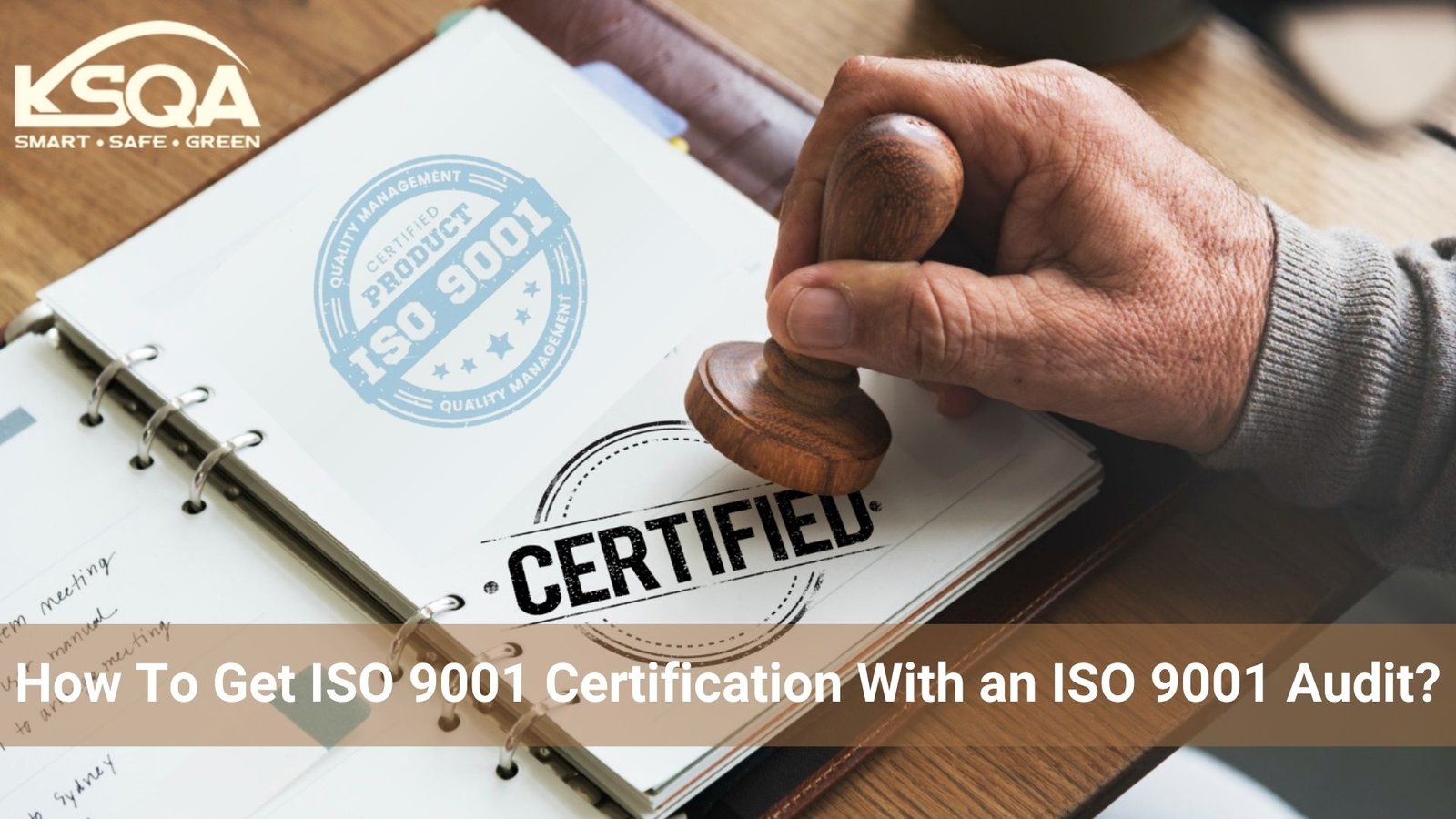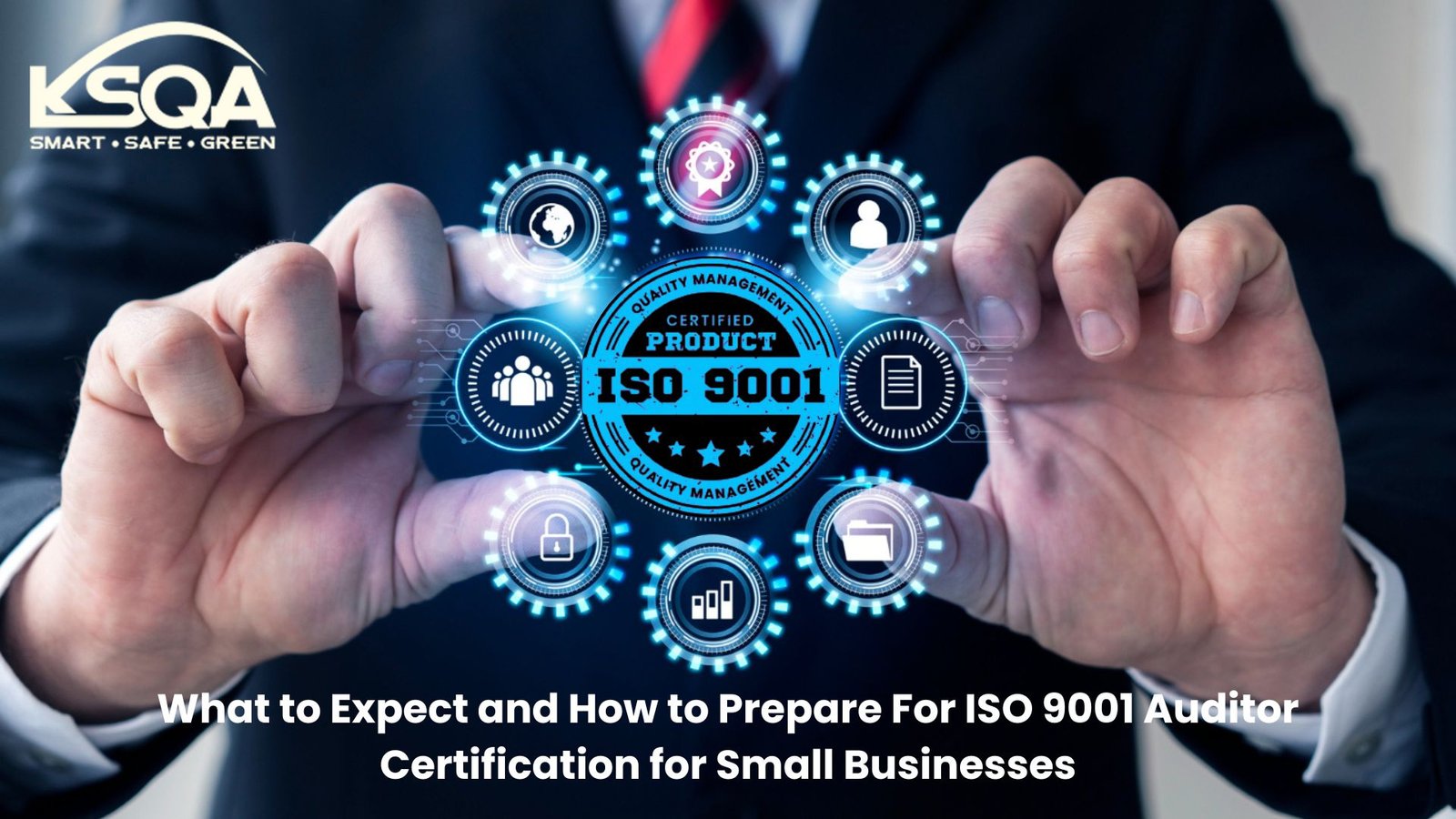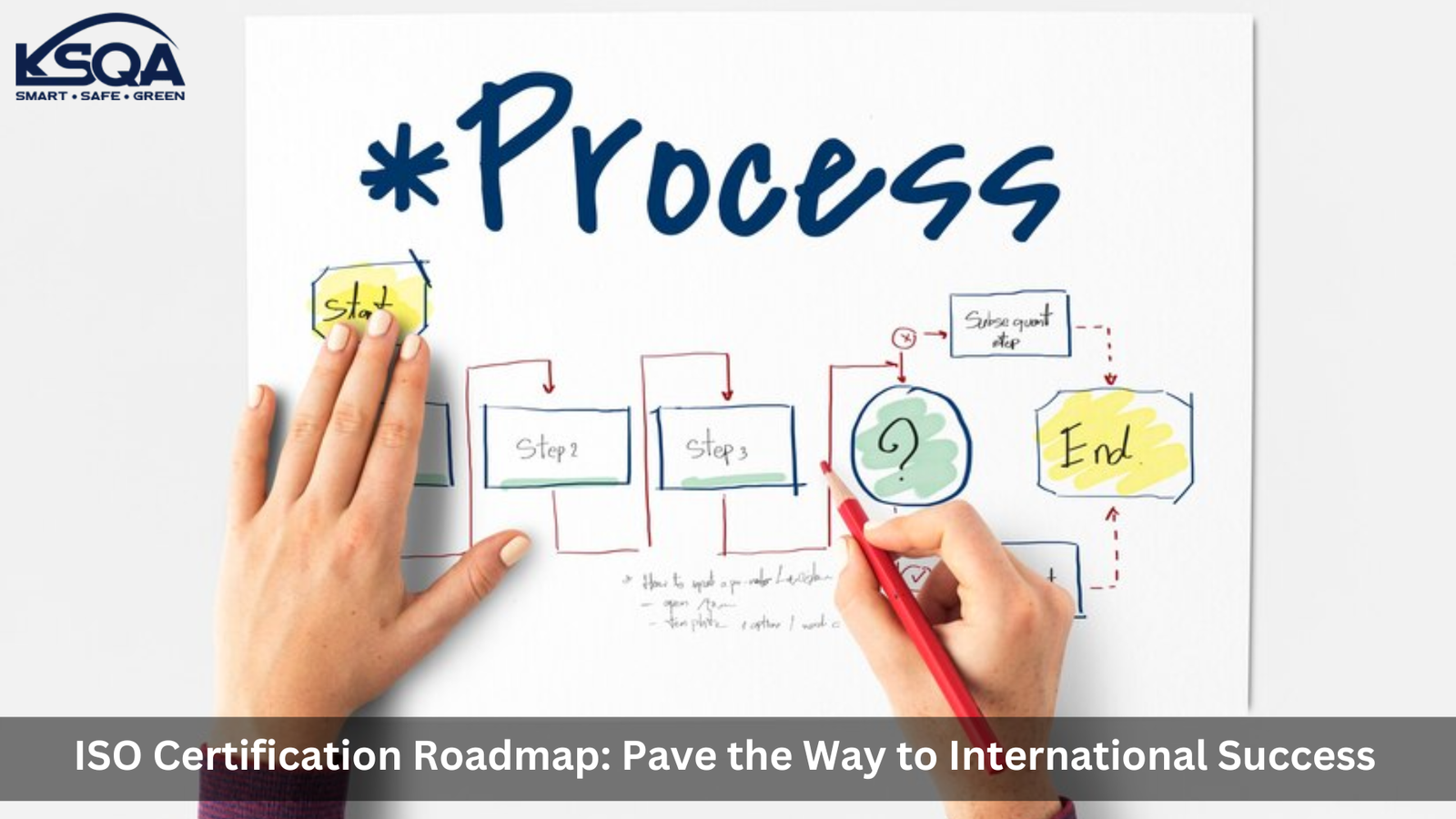Getting ISO 9001 certification is an impressive feat in the dynamic world of business and industry, showing an unbreakable dedication to quality control. In addition to improving an organization’s reputation, this certification improves customer happiness and overall operational effectiveness.
The road to ISO 9001 certification is not without its difficulties, though. Due to many difficulties and mistakes made along this path, many firms struggle and fail.
In this blog, we will examine these frequently made mistakes in the ISO 9001 certification process and offer advice on preventing them.

Mistakes To Avoid During The Certification Process
Lack of Management Commitment
The unbreakable dedication of top management is one of the most important factors in a successful ISO 9001 certification process. Organizations frequently make the error of considering ISO 9001 as merely a checkbox exercise rather than a strategic choice. Promoting the essential changes and keeping a quality-focused culture becomes difficult without solid leadership support.
Solution: The implementation of ISO 9001 should be actively supported by top management, who should also provide required funds and serve as an exemplary role model by upholding quality management principles.
Insufficient Employee Involvement
Every employee in the firm should be involved in ISO 9001, not simply the quality department. A common mistake is failing to engage workers at all levels. Employees may reject the modifications needed for certification without involvement, making the quality management system less effective.
Solution: Encourage your staff to participate fully and to communicate honestly. Offering training and awareness initiatives helps them comprehend the significance of ISO 9001 and how it affects the organization and its responsibilities.
Rushing the Process
Obtaining the ISO 9001 certification process that takes time. Rushing the procedure in an effort to achieve a deadline can result in a failed certification audit because of an incomplete implementation.
Solution: Establish a reasonable schedule for the certification procedure and make sure that each step is well-planned and carried out. Rushing the procedure will only produce poor results.
Neglecting Risk Management
Regardless of being an essential part of the ISO 9001 certification process, risk management is regularly overlooked or insufficiently incorporated into quality management systems. You risk encountering unforeseen issues during the certification audit without identifying and handling risks.
Solution: Create a thorough risk management strategy that describes mitigation tactics and identifies potential threats to your quality management system. To be proactive in risk management, review and update this plan on a regular basis.
Inadequate Documentation
The foundation of ISO 9001 compliance is proper documentation. Many businesses make the error of either over- or under-documenting their business procedures. Insufficient documentation can result in non-compliance, while excessive documentation can be troublesome.
Solution: By removing irrelevant paperwork and recording procedures that are essential to quality, strike the correct balance. Make sure all personnel who need it can easily access the information and that it is clear and simple.
Ignoring Continuous Improvement
The ISO 9001 standard highlights the value of ongoing development. Some businesses make the error of viewing accreditation as a one-time feat while neglecting subsequent attempts at improvement.
Solution: By routinely monitoring and evaluating performance data, carrying out internal audits, and looking for chances to enhance procedures and products, you may establish a culture of continuous improvement.
Misinterpreting Requirements
The thorough ISO 9001 standard has a lot of requirements. A frequent error that can result in non-compliance is misinterpreting or applying these rules wrongly.
Solution: Invest in the right education and training for the staff members in charge of putting ISO 9001 into practice. Consider employing a qualified consultant to assist your firm with certification and ensure correct standard interpretation.
Neglecting Supplier Relationships
Organizations should assess and deal with the performance of their providers as per ISO 9001, which emphasizes the significance of provider connections. The inability to do so may bring about issues with the quality of services and products purchased.
Solution: Create a strong supplier management program with frequent reviews, performance evaluations, and open lines of communication. Work closely with suppliers to make sure they adhere to your quality standards.
Overlooking Customer Feedback
Client satisfaction is a key component of ISO 9001, and businesses must collect and evaluate client feedback. Failure to do so may lead to lost chances for development and decreased client satisfaction.
Solution: Create a systematic approach for gathering, evaluating, and acting on consumer feedback. Utilize this data to motivate ongoing changes and match your goods and services to customer needs.
How ISO Consultants Can Help Expedite the ISO 9001 Certification Process
Expertise in ISO Standards
The prerequisites of the ISO 9001 standard are notable to ISO consultants. They have inside and out information on the strategies, best practices, and documentation expected to fulfill ISO 9001 requirements effectively.
Experts can assist firms with getting a handle on the standard’s necessities and guarantee that their quality management system (QMS) addresses all important parts. This information assists organizations with keeping away from frequent problems and mistakes through the certificate procedure.
Customized QMS Development
Creating a QMS that complies with the standards is one of the initial steps towards obtaining ISO 9001 certification. Organizations can engage closely with ISO experts to develop a QMS specifically suited to an organization’s needs while simultaneously meeting the requirements of ISO 9001. The QMS is realistic, effective, and simple to apply throughout the organization, thanks to this tailored approach.
Gap Analysis
ISO consultants conduct thorough gap research to determine areas where an organization’s processes and procedures vary from ISO 9001 requirements. This analysis allows organizations to comprehend better the work needed to become certified.
Then, consultants offer suggestions and strategies for bridging these gaps effectively. Organizations can conserve time and money throughout the certification process by addressing these problems before they turn serious.
Training and Awareness
The organization’s entire workforce must participate in the ISO 9001 certification process. ISO consultants can conduct training sessions and awareness campaigns to inform workers about the QMS and their duties within it. Informed employees are more likely to accept and successfully execute the QMS, which lowers resistance to change and speeds up the certification process.
Documentation Assistance
An essential component of achieving ISO 9001 certification is documenting processes, procedures, and policies. In order to ensure that the necessary paperwork is compliant with ISO standards, ISO experts can help with its development and organization. This entails drafting clear, concise, and in line with the organization’s goals manuals, job instructions, and quality regulations.
Internal Audits
Organizations must conduct internal audits to evaluate the efficacy of their QMS before applying for external certification. Through the internal audit process, ISO consultants may assist companies in finding improvement areas and ensuring the QMS is operating as intended. This step is essential in preparing for the outside audit to obtain ISO 9001 certification.
External Audit Preparation
The external audit by a certifying organization is the last and most important phase in the ISO 9001 certification process. By conducting dummy audits and imitating the certification body’s evaluation, ISO consultants can aid firms in getting ready for this audit.
Conclusion
Achieving the ISO 9001 certification process is a noteworthy accomplishment that can benefit a company in many ways. To succeed, companies must avoid several frequent mistakes, which is not an easy process to follow.
Avoiding these typical errors will not only result in ISO 9001 certification but will also promote a culture of quality that can help an organization succeed over the long run.
KSQA team helps you in ISO 9001 certification process. With more than 20 years of experience helping businesses of all sizes, our team of experts is standing by, ready to help you improve your business with ISO 9001 certification & AS9100 Certification.




